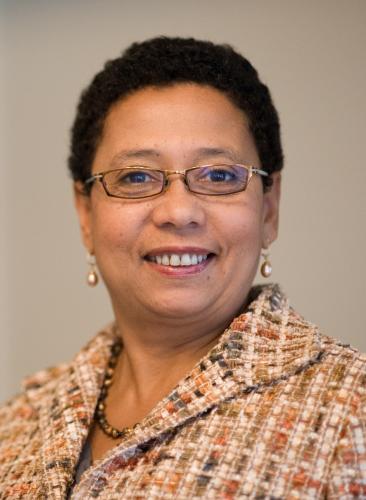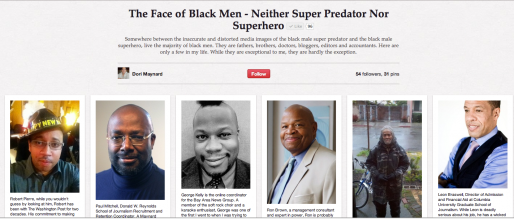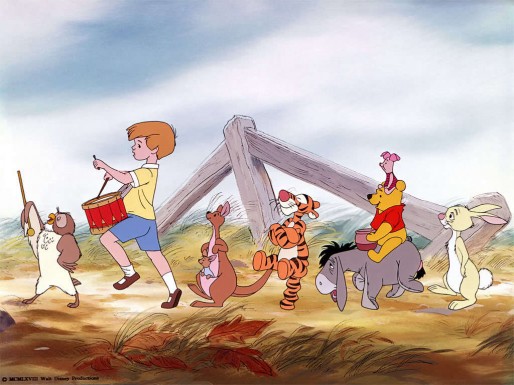 Current Location: Oakland, Calif.
Current Location: Oakland, Calif.
Current Gig: President and CEO of The Maynard Institute
Member Since: Jan. 2008
Six-word memoir: Too young to write a memoir
Quick and Dirty Resume: Was part of the Chauncey Bailey Project, co-authored Letters to My Children, a compilation of nationally syndicated columns by my late father. Worked as a reporter on both coasts — The Bakersfield Californian and The Patriot Ledger, in Quincy, Mass. — as well as at the Detroit Free Press, and in 1993 became the first daughter to follow a father as a Nieman fellow at Harvard University.
Favorite fictional character: Winnie-the-Pooh. He was an adventurous soul who led with his heart and wanted only happiness for his diverse group of friends.
Favorite tech tool: My iPad … and right now I’m really into Pintrest. I also like Storify, Twitter and Facebook.
What happens during your average day?
With my job, I don’t have an average day. Some days I get to talk to my younger friends about new media, social media and justice. Other days I’m in meetings with executive-type friends who have a different take on diversity in journalism. Every day offers something a little bit different. For example, this Tuesday afternoon I will talk to students at my local community college. Tuesday night I will be talking at a forum we are co-hosting with the Bay Area News Group to look at the role media coverage played in the death of Trayvon Martin. The only day-to-day unifying theme is that my time is spent helping news media accurately depict all segments of our society. And by news media, we mean no matter the platform — we are platform agnostic.
Why did you choose to get involved with online media?
My father always, even before there was an online media, was intrigued by what technology was going to do to society and the delivery of news. He died in 1993, but even then, he was predicting we would get our news on computers. In our house it wasn’t a question about whether to get involved, because it was understood that was where media was going. To ignore it would be to ignore the future of journalism. So for me, it always felt very natural.
And at the Institute in the 1990s, we started doing what we then called multimedia and cross-media storytelling sessions. Again, it was the direction journalism was clearly going in. And, quite frankly, it’s great. It gives you tools to tell your own story. Use the tools that you are comfortable with, to complement your version of storytelling. We aren’t confined to one way of telling a story.
What were conversations on diversity like when you entered the field? What are they like now? What has/hasn’t changed?
The fervor for diversity died down when the business model in traditional media collapsed. Everyone was so focused on trying to figure out the business model. Now we seem to have begun to find our footing [as an industry] with the tools and the technology. So we are at a point where we can say the tools are great, but we need to refocus on how we use those tools to tell stories and what stories we are telling about this country. And so I hope this is the beginning of a time for reflection, where we start looking at how we can move forward. This could be a period of hope and change.
You’re very passionate about Pinterest. Why does that platform speak to you?
Pinterest allows for a graphic way to tell your story. When I walk around my city, I don’t see my Oakland reflected in the media. I also noticed there aren’t many images of black men. It’s great that everyone is wearing hoodies [in solidarity with Trayvon Martin] but what about regular, everyday black men? So I made a Pinterest board. It’s a great storytelling tool.
If you could wave a wand and change something about our current media environment, what would it be?
Not only is everyone represented in the room, but we would have reached a point where we were able to talk comfortably about previously uncomfortable subjects. That’s my hope — that we get that race, class, gender, sexuality, generation and geography shape our views of the world and we’re not (all) going to be in the same place, but we’ve figured out a way to talk about it respectfully, honestly and solution based. We’ve accepted that there’s differences to how we all see the world and we want to know why we all view it so differently. That would be my wish.
If you had a million dollars dedicated to improving media, you would …
Only a million? I have big dreams! With a million, I would start a program giving journalists of color the tools to succeed and lead in the digital space. I would also make their contributions more visible so that we don’t keep having these conversations. And I would hire a fundraiser so I could get more than a million dollars so I could do all the work that needs to get done. Maybe that’s the first thing I would do.


